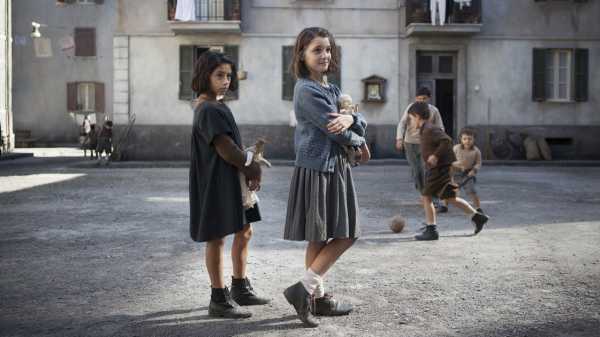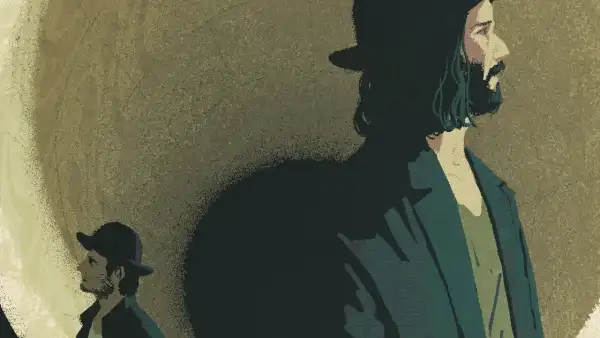
“My Brilliant Friend” (HBO), an eight-hour miniseries adapted from the first of Elena Ferrante’s Neapolitan novels, opens as the book does, with a telephone ringing in the dead of the night. Elena Greco, the book’s narrator, answers it to learn that her friend Lila has been missing for two weeks; she has also disappeared her documents and cut her own face out of family photographs.
On the screen, Elena pecks at her laptop, and the director, Saverio Costanzo, conjures her story as confrontational retrospection: a reconstruction of the love and anger of their complicated alliance. It began when they were poor girls in Naples, in the nineteen-fifties, a period made to feel, simultaneously, like the sixteen-hundreds. They’re doing the twist on the dance floor—and also there are donkeys hitched to carts in the courtyard, and the adults are speaking of blood feuds, or else just wailing, and the neighborhood class dynamics date back to the Byzantine Empire. The vowels of Enzo, the son of the fruits-and-vegetables peddler, echo around the dirt and old stone of the neighborhood with the hardiness of a town crier’s: “Oranges! Cherries! Salad greens!”
The language is Italian and its dialects. The genre is neorealist melodrama, with a sumptuous nostalgia for the Golden Age films of Roberto Rossellini, Vittorio De Sica, and Luchino Visconti. The costumes and art, with their deep colors and stylized shabbiness and sumptuous austerity, are like a Prada ad for working-class gloom. The bricklayer’s son seethes about economic injustice while sporting an excellent maroon turtleneck. The atmosphere is thick in a way that sometimes verges on self-parody and sometimes feels appropriate amid the ferocity of the friendship between Elena and Lila and the intensity of the adult intrigues as the children understand them. Tales of adultery and usury roll down to their ears by way of gossip, misheard whispers, and cautionary folklore, and they snowball into thrilling myth. Beneath the show’s heavy coats of operatic varnish and prestige-TV enamel, it demonstrates a humble tenderness.
In the specifics of its plot and the essence of its tone, the adaptation is faithful, though not slavishly so. The first episode, especially, shuffles the book’s nonlinear swirl of impressions and associations into chronological order, for the sake of clarity, at the cost of a sluggish pace. Elena reconstructs a vision of the girls meeting, in first grade: she looks up from her work and is magnetized—“confusedly attracted,” she says—by Lila. In school, Elena is capable but aimless, while Lila combines effortless intelligence with enthusiastic insolence. Becoming Lila’s companion, Elena discovers a rival and muse and stimulating bad influence. (Elena is played by Elisa Del Genio as a grade-schooler and by Margherita Mazzucco as an adolescent, Lila by Ludovica Nasti and Gaia Girace, respectively.) The children, ghostly and precocious, are not especially childlike, and the series resists sentimentalizing their innocence, giving the sense that we are imbibing some kind of stark fable. None of these girls are professional actors; all of them are unshowy and sincere in a way that suits Costanzo’s homage to neorealist masterpieces while also honoring the rawness of the novel.
Crucially, the naturalism of the central performances—as the girls grapple with the affections and predations of boys and with the expectations of their exhausted parents—balances a thumping ostentation in evidence elsewhere. The second episode, in which Elena’s parents resist her desire to continue her academic career into middle school, gives Elena’s mother two fierce domestic scenes. First, while telling the kids what is what, she peels garlic with precise violence. Later, she whips eggs with an intensity that foreshadows a beating of the uppity child. Swelling music underscores and overscores and sometimes bludgeons such peaks of emotional intensity. It’s too much for literary fiction, just enough for a lavish ghost story.
Sourse: newyorker.com






